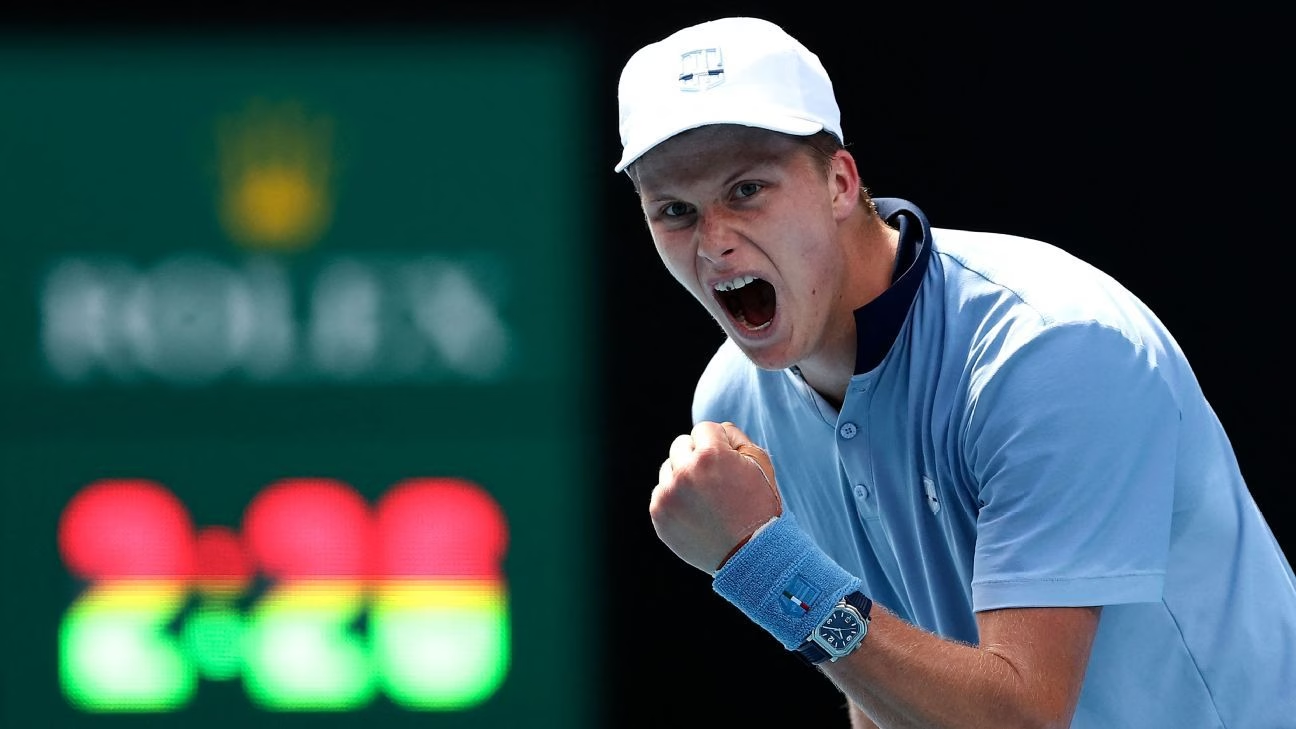Jenson Brooksby tugged at the right shoulder of his red T-shirt and fiddled with some strands of his dirty blond hair as he spoke to The Associated Press about what he would like the world to know about him.
Once a member of an up-and-coming group of American men making their mark with big wins at Grand Slam tournaments, Brooksby wants people to know what went on while he was away from the tour for nearly two “frustrating” years that, he said, made it “easy to get depressed.” Ranked No. 33 at age 21 in 2022, just a year after going pro, he is now unranked after being sidelined by injuries, operations and a ban connected to missed drug tests that eventually was reduced.
As Brooksby prepares to compete again in January, including at the Australian Open, he wants people to hear about his experience living with autism spectrum disorder, which he discussed publicly for the first time during a recent interview.
“It’s … just something I don’t want to have to keep to myself,” Brooksby said over a post-workout lunch in a boardroom at the U.S. Tennis Association National Campus in Florida. About 20 miles east of Walt Disney World, it’s the site of preseason training for about a dozen tennis pros.
“It’s obviously a personal topic that, even with people you may feel very comfortable with — in my mind, at least for a long time — it wasn’t [something] to just go blurting out as part of a conversation, you know?” said Brooksby, 24, a native Californian who said he was nonverbal until the age of 4. “But I’ve always thought about it and … I, eventually, just wanted to talk about it.”
As a kid, he said, he spent about 40 hours a week with therapists “to be able to even just start talking … [and] then to get better at communication and social situations.”
Brooksby called the autism a “big strength” in “pressure moments” on court, allowing him to “focus on two or three specific details really well for a long period of time.” He also mentioned “something that makes [tennis] a little tougher”: He will have outbursts if he is losing or is upset about a certain shot or aspect of his technique, a tendency his athletic trainer, Paul Kinney, keeps an eye out for, along with signs of discomfort such as reaching for his clothing or hair or leaning forward with hands on knees.
After he presented as a “very severe case” as a child, Brooksby now “is on the very mild end of the spectrum,” according to Michelle Wagner, a board-certified…
Click Here to Read the Full Original Article at www.espn.com – TENNIS…

